5-Star Client
Rating
Free Case
Assessments
Industry Experts: 20+ years of experience
No Win No Fee Guaranteed
5-Star Client
Rating
Free Case
Assessments
Industry Experts: 20+ years of experience
No Win No Fee Guaranteed
Would you like assistance with your claim?
Complete our free, no obligation confidential case assessment form and we’ll get back to you within 24 hours.
Alternatively, we are available to talk by phone and email. Please contact our experienced accredited specialist personal injury lawyers to find out how we can help.

No Win No Fee
You won’t be required to pay any fees until we win your case.
Industry Experts
We’re industry experts with over 20 years of experience.
Maximum Compensation
Our team of expert injury lawyers will help you get maximum compensation.
Find out more about Accident Claims
Frequently Asked Questions
1. How to make a claim for compensation
To make a claim for compensation you need to complete the Application for Personal Injury Benefits Form. To complete this form you will need the following: –
- Police event number.
- Medical certificate showing your fitness for work from your general practitioner.
- Evidence of your income if you are claiming loss of income
- Accounts/receipts for medical treatment you have incurred.
Once the form is completed you need to send it to the insurer of the vehicle that you consider is at fault (or if you were at fault, the CTP insurer of your own vehicle).You can do this by contacting the CTP Assist Service on 1300 656 919 and providing them with the registration number of the vehicle at fault.
The CTP Assist Service will then provide you with a name and address of the insurer to send the application form to. This form should include a completed certificate of fitness form completed by your general practitioner.
2. Is there a time limit for making a claim?
The Application for Personal Injury Benefits Form should be completed within 28 days from the date of the motor vehicle accident. This will ensure that you receive weekly payments from the date you were unable to work.
You can complete the Application for Personal Injury Benefits Form within three months from the date of the motor vehicle accident however weekly payments will only be commenced from the date you submit the form. The insurer will also commence payment of medical expenses once you submit the form.
You then have a period of three years from the date of the accident to commence a claim for damages if you are eligible.
These time limits are very important and should be diarised to ensure that you and your lawyer comply with the time limits.
3. What happens next?
- The insurer will contact you once you have lodged the claim form, acknowledge receipt and provide advice of the next steps in the process. This will include providing you with a claim number and the contact details of the insurer.
- If you need immediate medical treatment, the insurer will explain what you should do next and how to claim reimbursement for those medical expenses.
- The insurer will investigate your claim including reviewing the police report and other evidence they may ask for including medical evidence.
- The insurer must tell you within 4 weeks of making claim if they are accepting or declining your claim including a full explanation of their reasons.
- If the insurer accepts your claim, they will commence making weekly payments and medical expenses to you within 14 days.
4. What if I disagree with the insurers' decision?
If you disagree with the insurers’ decision you need to request an internal review from the insurer. This, paperwork will be provided to you with the decision declining your claim.
This will require another person within the insurer (who was not involved in the original decision) to review the matter and make a new decision.
If you are still not satisfied with that outcome you can make an application with SIRA through the Dispute Resolution Service who will appoint an independent person to review the decision on your behalf. There are limited situations in which legal assistance can be provided.
5. Statutory benefits scheme
Anyone injured in a motor vehicle accident is now entitled to personal injury benefits under a statutory benefits scheme which includes payment of weekly payments and medical expenses. This is similar to the worker’s compensation system.
i.Weekly payments:
Weekly payments compensation is payable by the insurer to you, for income you have lost because of your injury.
Your weekly payments will be payable at a percentage of your pre-accident income.
For the first 13 weeks, you are paid 95% of your pre-injury income.
Between weeks 14 and 26 you are paid up to 80% of your pre-injury income.
At the end of 26 weeks, weekly payments will cease if:-
- The motor accident was your fault (or mostly your fault, that is the insurer has determined you contributed to the accident by more than 61%); or
- Your injuries are assessed as being “minor injuries”.
If you are entitled to continue to receive weekly payments after 26 weeks, they will continue at 80% of your pre-injury income.
To be entitled to weekly payments after two years, the injured person must continue to have an ongoing incapacity for work and have lodged a claim for damages.
What is a “minor injury”
There will be a significant argument as to whether an injured motorist has suffered a “minor injury” in accordance with the definition contained in the Act.A “minor injury” is defined as any of the following:-
(a) A soft tissue injury; or
(b) A minor psychological or psychiatric injury.
A soft tissue injury is defined as an injury to the tissue that connects, supports or surrounds or structures or organs of the injury (E.g. muscles, tendons, ligaments, meniscus, cartilage, fascia, fibrous tissue, fat, blood vessels and synovial membranes), but not an injury to nerves or a complete or partial rupture of tendons, ligaments, meniscus or cartilage.
A minor psychological injury is defined as a psychological or psychiatric injury that is not a recognised psychiatric illness.
If the insurer decides that you have sustained a “minor injury” and you disagree you should contact your lawyer immediately for assistance.
If you accept the insurer’s decision that you have a “minor injury” then statutory benefits of weekly compensation and medical expenses will cease after 26 weeks.
If you have an injury other than a “minor injury” you are entitled to claim further compensation including the following: –
- Medical expenses and commercial care for life.
(b)Weekly payments for up to five years.
(c) Make a claim for common law damages.
ii.Medical expenses:
The insurer will pay for reasonable and necessary medical expenses relating to the injury which include: –
- Medical and pharmaceutical expenses.
- Rehabilitation and treatment expenses.
- The cost of travelling to and from appointments.
- Personal care and help around the home.
No benefits are paid for “gratuitous attendant care services” which means care provided by family and friends which is not paid for.
Medical expenses will cease after 26 weeks if: –
- The injured person was at fault or mostly at fault (contributory negligence is found to be more than 61%); or
- The injuries resulting from the motor vehicle accident were minor injuries.
Medical expenses, therefore, will only continue after 26 weeks if you were not at fault in the accident and you have an injury other than a minor injury.
6. Common law damages
You can claim Common Law Damages for your injuries as modified by the MAIA only if: –
- If you have sustained injuries other than a “minor injury” and
- The accident was not your fault.
If the insurer accepts both of these requirements, then you can make a claim for common law damages. This entitles you to make a claim for lump sum compensation against the at-fault drivers CTP insurer responsible for the accident that caused your injuries.
To make a common law claim, you must lodge a claim through the at-fault drivers CTP insurer (or the Nominal Defendant if applicable) within three years from the date of accident. As outlined above, lump-sum compensation is only payable for people who have: –
- More than “minor injuries”; and
- Were not at fault in the accident.
7. What damages can I claim?
You can claim Common Law Damages for your injuries as modified by the MAIA only if: –
- If you have sustained injuries other than a “minor injury” and
- The accident was not your fault.
If the insurer accepts both of these requirements, then you can make a claim for common law damages. This entitles you to make a claim for lump sum compensation against the at-fault drivers CTP insurer responsible for the accident that caused your injuries.
To make a common law claim, you must lodge a claim through the at-fault drivers CTP insurer (or the Nominal Defendant if applicable) within three years from the date of accident. As outlined above, lump-sum compensation is only payable for people who have: –
- More than “minor injuries”; and
- Were not at fault in the accident.
8. How to apply for common law damages
You can claim Common Law Damages for your injuries as modified by the MAIA only if: –
- If you have sustained injuries other than a “minor injury” and
- The accident was not your fault.
If the insurer accepts both of these requirements, then you can make a claim for common law damages. This entitles you to make a claim for lump sum compensation against the at fault drivers CTP insurer responsible for the accident that caused your injuries.
To make a common law claim, you must lodge a claim through the at fault drivers CTP insurer (or the Nominal Defendant if applicable) within three years from the date of accident. As outlined above, lump sum compensation is only payable for people who have: –
- More than “minor injuries”; and
- Were not at fault in the accident.
9. How is my claim for damages determined?
The claim for damages will be determined either by agreement between you and the insurer (with the assistance of a lawyer), or you must lodge an application in the Claims Assessment Resolution Service (CARS) within three years from the date of the accident. CARS will appoint an independent arbitrator to hear and determine your claim.
As part of the process of making a claim for damages, the insurer will investigate your claim further and obtain information about your medical condition from your treating doctors. The insurer will then arrange for you to be assessed by medical specialists appointed by the insurance company.
They will also ask several questions called “particulars” in relation to the injuries that you have sustained, your impairments and disabilities as well as any loss of income that you are claiming. This information will assist the insurer to make a reasonable offer of settlement to finalise your claim.
You will need the assistance of a lawyer to resolve your claim for damages.
If you accept an offer of settlement from an insurer and your claim is finalised, then this is a full and final settlement of your rights to non-economic and economic loss. However, you to be entitled to payment of medical expenses as outlined previously.
Most claims will be dealt with by CARS and determined by an arbitrator. Only, a very small percentage of claims will go to the District Court of NSW.
10. What legal costs are payable?
In relation to the Statutory Benefits Scheme, there is very limited assistance that can be obtained from a Lawyer. If you dispute a decision made by the insurer you are able to obtain limited assistance from a Lawyer, depending on the nature of that dispute.
The major decisions that the insurer can make which will affect your ongoing entitlement to compensation will be the following: –
- Whether you were at fault or mostly at fault (contributory negligence of 61% or more); and/or
- Whether you have a “minor injury”.
If the insurer makes a decision about these matters which is averse to you, then you should seek the assistance of a Lawyer to dispute the insurer’s decision.
If you are entitled to make a claim for common law damages, then the insurer is required to pay a fixed amount of legal costs as determined by the Motor Accidents Legislation. This amount varies according to the amount of compensation you receive and the stage on which your claim is concluded.
Your Lawyer is permitted to charge an additional amount that may exceed the amount which is payable by the CTP insurer. If this is the case, then you will be required to pay that additional amount from the compensation that you receive.
You need to make sure you understand how your Lawyer will charge legal costs and disbursements. This is contained in a Costs Agreement. How legal fees are charged must be set out in costs agreement between you and your Lawyer.
It is important that you understand exactly how your Lawyer intends to charge legal costs and the amount you will be required to pay the conclusion of your claim. Most Lawyers will proceed with your claim based on a no win no fee conditional costs agreement.
If you have any questions about the new Motor Accident Scheme or Motor Vehicle Accident Compensation, please feel free to contact us.









